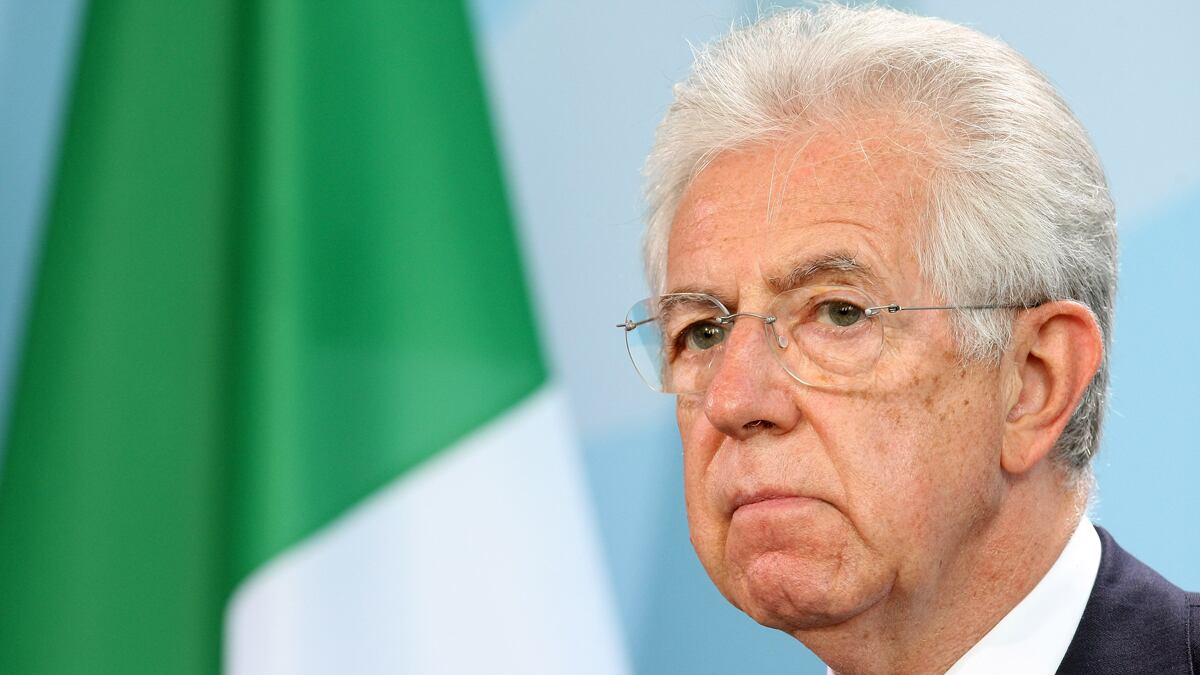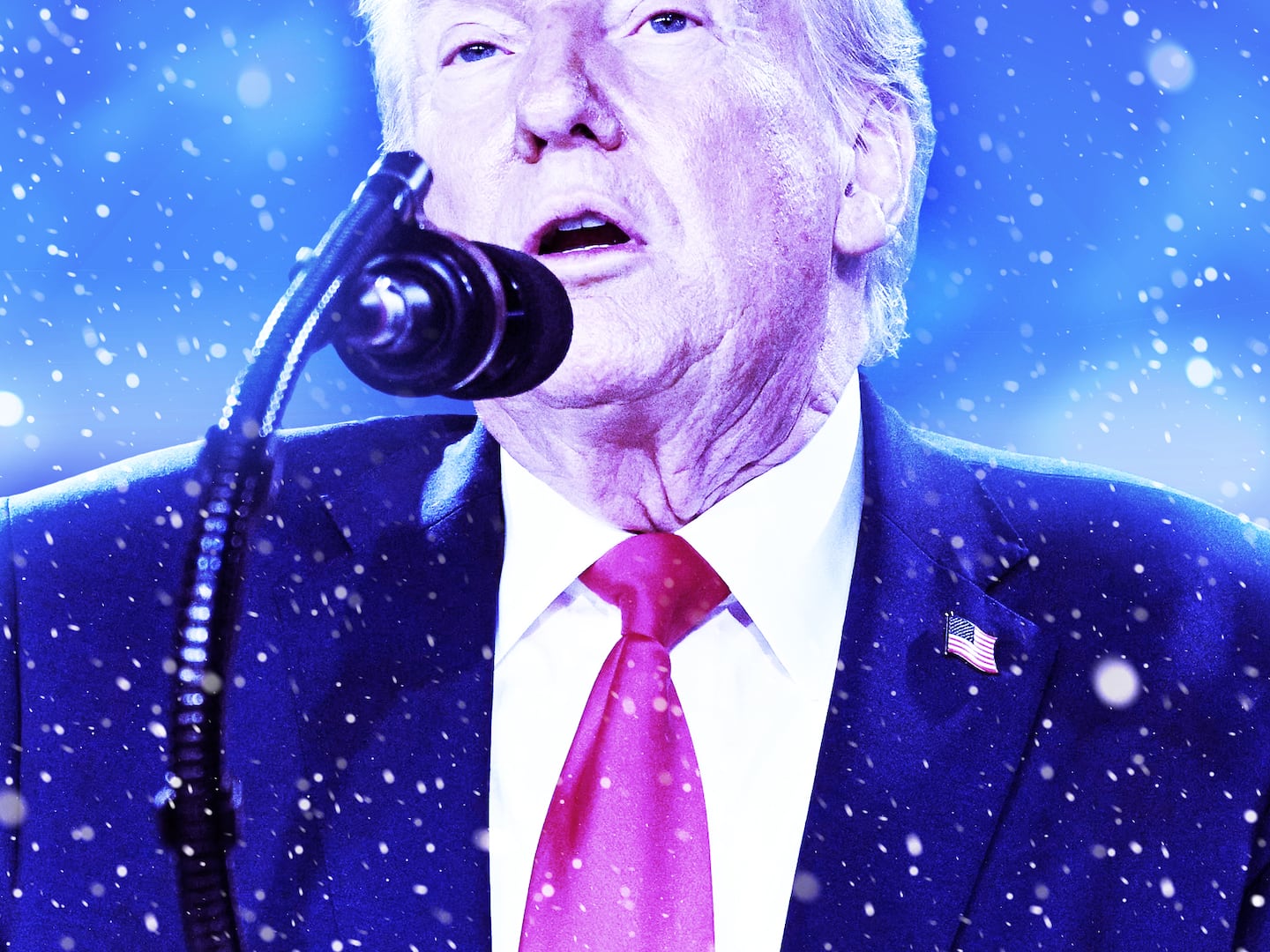Perhaps no one in Italy dreads the end of summer more than Prime Minister Mario Monti, who has been grappling with the monumental challenge of stopping the country’s economy from sliding into the abyss. Saddled with a spiraling approval rating and the task of implementing even more austerity measures—under growing pressure from the European Union—the bespectacled economist looks increasingly deflated, like a fallen superhero.
When he was appointed last November by President Giorgio Napolitano, Monti was hailed as “super Mario,” a savior who immediately burnished Italy’s global reputation following the stains and sins of Silvio Berlusconi, who was effectively heckled off stage amid a string of sex and corruption scandals. Monti came to office with a 70 percent approval rating, mostly because he was the antithesis of Berlusconi. But the shine on Monti’s halo is starting to tarnish, and Italians are showing signs of missing their rogue in office.

Berlusconi has, for months, been hinting that his comeback is not out of the question, and that he would consider running again “for the good of the country” if asked by his party. On August 19, vacationers on the Adriatic coast near Rimini were surprised when one afternoon a plane trailing a banner “Come Back Silvio” flew over the crowded beaches—paid for by one of Berlusconi’s party faithful.
Monti has said he will not run in elections, which must be held by next spring. Top contenders beyond Berlusconi include comedian Beppe Grillo, who has won favor among the disgruntled undecided voters in his Five Star Movement. Even if Monti did run, it is not clear he would have any chance of winning. He has cleaned up Italy’s reputation and clamped down on the elite yacht class and Ferrari-driving tax evaders like no one before him, but he is losing favor with everyday Italians at an astonishing rate.
August polls show Monti’s approval rating hovering around 30 percent. “Monti has lost his allure,” an influential editorialist in Italy’s left-leaning La Repubblica newspaper wrote in a summer op-ed. The article forecast gloom and doom in the coming months as Italians return from their summer holidays to face a season of strikes, massive layoffs, closures of schools and hospitals, and a decrease in basic services—as austerity cuts passed in the spring start to take effect.
Many analysts say Monti’s problem is his past. A former adviser to Goldman Sachs, he increasingly is considered “one of the them” when blame is being cast on just who created the euro zone economic crisis he is now trying to guide Italy out of. Italian newspapers that once lauded the prime minister for giving Italians back their sense of pride after years of embarrassing Berlusconi buzz are now berating him for hypocrisy. For a brief period, a Facebook spoof page showed Monti as a vampire sucking the life out of Italians. “Welcome to Tassilvania” allowed players to throw virtual tomatoes at the prime minister, under the exhortation: “Monti wants your blood, now you can throw tomatoes at him.”
More troubling than the premier’s dwindling popularity is the fact that he is now effectively stuck in limbo between the warring politicians who are eyeing his job. Last winter, parliament yielded under bipartisan pressure and helped him miraculously pass €20 billion worth of tough-love reforms, austerity cuts, and tax-hikes—including reinstating the property tax on primary homes that Berlusconi had abolished when he took office 17 years ago.
But now, with elections expected sometime before next spring, it is politics as usual, and none of the top contenders want to be aligned with measures that may cost them votes, nor do they want to dabble with much-needed electoral reform, which will make Monti even more isolated and unpopular as he continues to push austerity this fall—sending a troubling message to world markets.
“With Italian Prime Minister Mario Monti due to step down in 2013 ahead of the spring general elections, the lack of progress on the reform of the country's electoral law, which at present grants a large degree of power to party leaders, continues to intensify concerns over political instability,” says analyst Jürgen Michels of Citi. “Italians’ disapproval of the current system and politicians’ lack of agreement on how to amend it, could therefore impact the outcome of next year’s election, thus intensifying the markets’ fears that Italy will be engulfed in deep political instability ahead of next year's election.”
Topping Monti’s agenda when parliament reconvenes in September is continuing to push labor reform, which has been a painful thorn in his side. Labor reforms, which make it easier to fire workers and more difficult for companies to hire part-time workers, have angered employee unions and employers alike. Fears of widespread strikes across the country threaten to batter his approval rating even more. Still, he has vowed—most recently to German Chancellor Angela Merkel in a bilateral meeting in Berlin this week—that he will stick to reforms he says will breathe life into the economy. He also must tackle pension reform and tax increases, including introducing a sin tax on wine and cigarettes—two vices many Italians hold dear. Merkel, in a joint press conference early this week, praised Monti’s work in Italy. “I am personally convinced these reform efforts will bear fruit; that they will improve Europe’s overall competitiveness,” she said.
But not everyone in Italy is concerned about what’s going on in Europe, when there are serious problems at home. In Rome, 1,500 employees at the Fatebenefratelli Hospital have not had a paycheck in August. The paychecks are now 40 days late, and have been promised to arrive by September 4, but for some workers, that’s far too late, especially given that politicians are still collecting their monthly checks on time.
“We are asking everyone to guarantee the payments to hospital workers,” says Enrico Gregorini, head of the local labor union supporting hospital workers. “That’s the only way to guarantee the patients will continue to get the care they need. You cannot cut payments to those who provide such necessary services and still pay the Parliament.”
Monti also has been pressured to defend President Napolitano, the man credited for finally getting rid of Berlusconi, and who is embroiled in a somewhat curious telephone-interception scandal that could cause his early retirement. Monti has hinted that the anti-Napolitano move is nothing more than a revenge attack by forces trying to stir up a political storm to further destabilize his government and send the country to early elections. “We must oppose any attempt to destabilize the country, with the intention of undermining its credibility at the root,” Monti said in a statement defending the president.
But if the autumn proves to be as contentious as analysts predict, Italy will only need a nudge to lose its balance completely.






